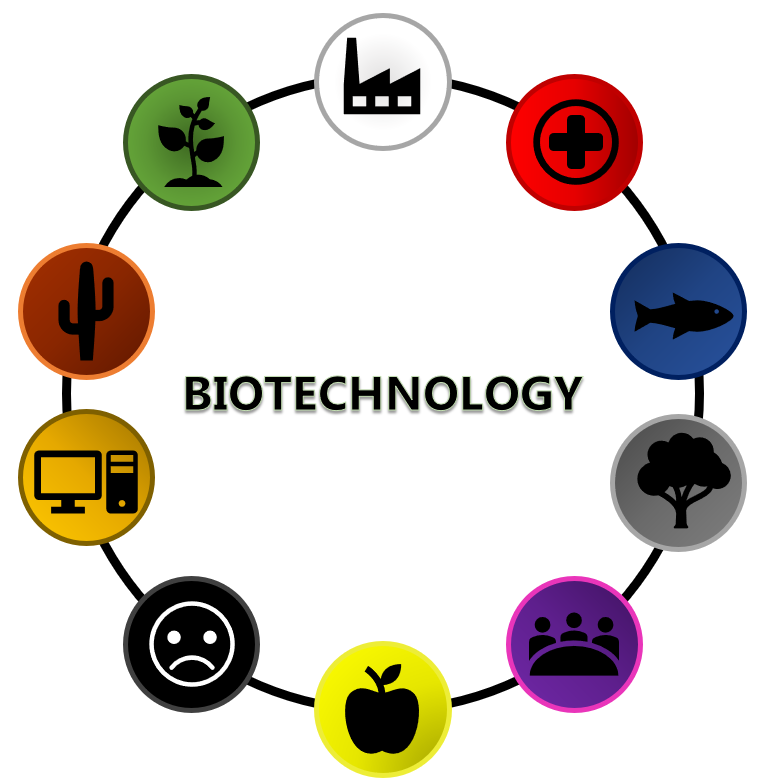What is Biotechnology?
Simply put, biotechnology is technology based on biology. Biotechnology harnesses cellular and biomolecular processes to develop technologies and products that help improve our lives as well as the health of the planet. Humankind has used biological processes of microorganisms for more than 6,000 years to make useful products, such as bread, cheese and beer. Depending on the tools and applications, it often overlaps with the fields of bioengineering, biomedical engineering, biomanufacturing, molecular engineering etc.
Rainbow Code of Biotechnology
With biotechnology being so diverse, the different branches or divisions of biotechnology are most commonly referred to using colors, thanks to Kafarski (2012).
 |
| Image found on Steemit |
- Red- Medicine, health and diagnostics
- Blue- Marine biotechnology
- Grey- Environmental and bioprocess technology
- Violet- Law, patents, publications, inventions
- Yellow- Food biotechnology and nutrition
- Dark- Bioterrorism, biowarfare
- Gold- Bioinformatic, Nano biotechnology
- Brown- Arid zone and desert biotechnology
- Green- Agricultural, geomicrobiology
- White- Gene-based bio-industries
follow the blog in the coming days for more in-depth reads on each color.
Old vs. New Biotechnology
Many authors prefer to separate biotechnology into old-traditional biotechnology and modern biotechnology. With traditional biotech referring to our uses of natural processes to produce wine, beer, cheese and many other foods, with methods that have been around for many centuries. And modern biotechnology being used to embrace genetic manipulation, cell fusion techniques and improvements over traditional biotech.
Biotechnology: A timeline
As mentioned earlier in this article, the first uses of biotechnology dates back to around 6,000BC when yeast was first used to produce beer and wine, and bacteria was used to prepare yoghurt. Some researchers consider Louis Pasteur (who identified the role of microorganisms in fermentation) to be the father of biotechnology.
In the first half of the twentieth century, biotechnology became associated with the fields of applied microbiology and industrial fermentations, with the production of penicillin and organic solvents. The development of modern biotechnology is closely linked with the advances made in molecular biology. Below is a timeline outlining the historical foundations that contributed to the development of biotechnology as we know it today.
Public Perception of Biotechnology
Humans are the ultimate beneficiaries of biotechnology, pioneering discoveries that help us both as the people and the planet that we call home. Public perceptions of biotechnology significantly influence the rate and direction of the future growth of biotechnology.
The use of recombinant DNA technology has raised safety concerns. The public's attitude towards biotechnology is mainly comprised of concerns regarding the imaginative dangers that are associated with genetic manipulations. This is why there is a need for the biotechnology community to frequently interact with the media and public to clear the unwarranted fears about the possibilities that the sector of biotechnology harnesses.
The Future of Biotechnology
Biotechnology has become a comprehensive scientific venture from the point of both academic and commercial view points. The future developments in biotechnology are going to be very exciting, and very hard to predict with the current rate of technological advancements.
All we can say is that there will be a new scientific revolution, caused by the development of biotechnology, that will change the lives and futures of the worlds populations. There has already been an industrial revolution and a computer revolution. Now it is time for the biotechnology revolution.

Comments
Post a Comment